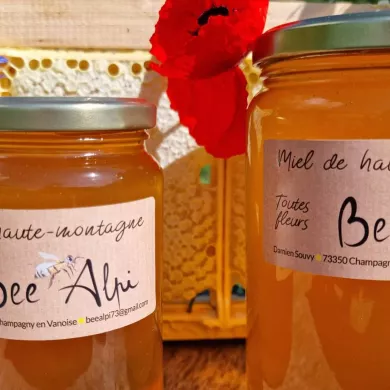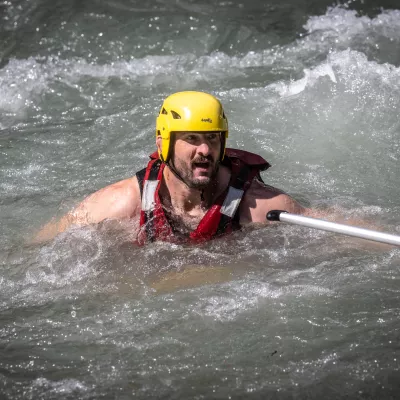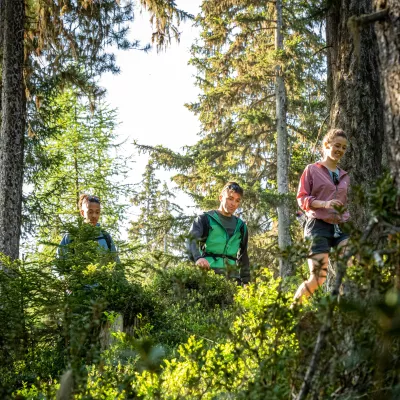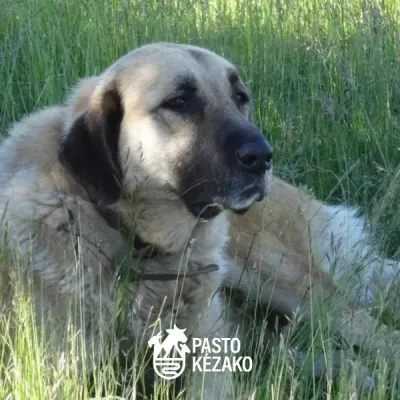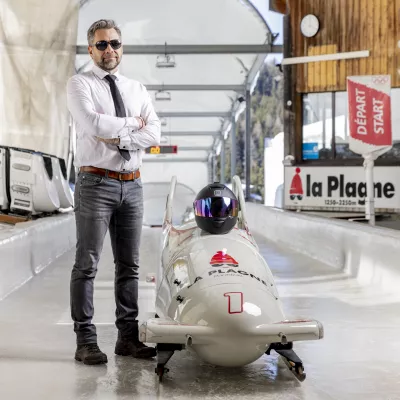Every summer, the valley of Champagny-le-Haut is invaded by buzzing summer visitors with wings – bees - that are deposited along with their hives by the local beekeepers. It is like a 5* holiday resort in a calm location at an altitude of 1,500 m where the intense mountain flowering is concentrated over a three week period. Swarms have been known to escape from the hives and settle in the hollow parts of the 24 m-high tower that is covered with ice in the winter but becomes a refuge of choice in summer for insects in search of a place to reproduce. A colonisation which, in 2017, triggered the beekeeping vocation of Damien Souvy, a mountain guide and dedicated guardian of the tower.
A dizzying move
In early July, two or three swarms from the nearby hives move into the wooden parts of the tower, 20 m above the ground. The insects are probably attracted by the pheromones on the wooden panels, as well as the tower’s favourable orientation. In 2017, it was Antoine Mercier, a local paraglider pilot and a beekeeper at the time, who made Damien aware of the need to put the swarms back in the hives:
Antoine was a beginner at climbing and I was a beginner beekeeper! I didn’t even eat honey. So it was quite an adventure to climb up there and remove the wooden panels that took up the whole width of the tower to get to the insects. I had to get the tower ready to host the French national climbing team. Antoine wanted to collect the bees for his hives, particularly as it’s expensive to buy them
Intrigued by the experience and curious by nature, Damien became interested in the insects, but it was a paragliding accident in 2019 that gave him the time to look at the world of beekeeping in more detail.
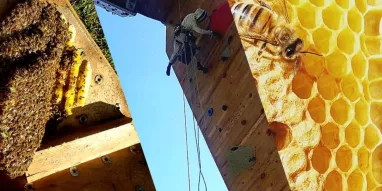
A beekeeper is born
This was how Damien started making his first jars of Bee Alpi honey:
While I was convalescing, I had time to teach myself and read up on the subject, learning as much as I could. I managed to start making honey quite quickly.
These days, at the busiest moment of production, Damien manages more than 30 hives (80,000 bees / hive), producing 1.6 tonnes of honey, in other words over 40 kg per hive: ‘On a national scale, that is a good amount. He attributes his consistent success to an ability to adapt constantly and to take into account a range of factors that favour (or not) the production of honey:
Being a beekeeper means considering a lot of details which are different every year. It’s a question of trial and error; you just have to get the hang of it, a bit like having green fingers with plants!
Damien also looks after 15 hives with queen bees that are dedicated to reproduction.
Adapting to a rapidly changing climate
Nowadays, the intervention that consists of moving the swarms from the tower to the hives is almost a routine manoeuvre for Damien: ‘The tower has evolved and the volumes that have to be dismantled are much smaller. With my experience and the knowledge I now have of the bees, it is much easier’. The swarms recovered are used to (re)populate the nearby hives, even if they are not the most efficient bees. ‘Genetically, they are quite weak and they are not the best honey producers’. Like all beekeepers, Damien is seeing the impacts of climate change which are particularly evident in the mountains: ‘In spring, the temperature changes can be dangerous for the bees. A cold snap can weaken them and jeopardise future harvests. I have to be extremely vigilant and constantly adapt.’
❤️ Follow Bee Alpi on Facebook

